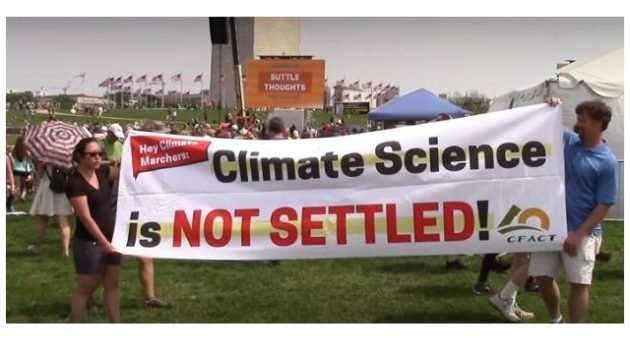Sacred peer-review takes a big hit
Is there a more self-contradictory term than “settled science?”
Science should always be open to challenge and investigation. The scientific method demands that conclusions must follow facts. We must never adjust the facts to suit a conclusion.
Sadly, this is not always the case.
We posted an article at CFACT.org which highlights how “Stanford University medical professor John Ioannidis, in an interview with Agence France Presse (AFP), blew the lid off the trustworthiness of the peer-review process.”
Global warming alarmists suffered a big hit this week in their effort to deify shoddy “peer-reviewed” climate papers. Stanford University medical professor John Ioannidis, in an interview with Agence France Presse (AFP), blew the lid off the trustworthiness of the peer-review process.
When the alarmist community seeks to push a new argument or messaging strategy in the global warming debate, they first have one of their pseudo-scientists write an article for publication in a compromised peer-reviewed journal. The political left has infiltrated and taken over most science journals that address political hot topics, much as they have taken over most of the “mainstream” news media. This is especially the case regarding global warming issues. As the leaked Climategate emails revealed, editors of science journals typically are prominent alarmists or deliberately coordinate with prominent alarmists in the selection of articles and messaging. The “peer-review process” typically involves the editor sending a submitted article to a team of reviewers who are outspoken climate activists. After the paper is published, global warming activists and their media allies typically cite the peer-reviewed nature of the paper as evidence that its conclusions are infallible. Any who question the methodology or alarmist conclusions are then labeled science deniers.
According to Ioannidis, the peer-review process guarantees little in terms of trustworthiness even before political agendas compromise the issue.
“[W]hen studies are replicated, they rarely come up with the same results. Only a third of the 100 studies published in three top psychology journals could be successfully replicated in a large 2015 test,” AFP reported, summarizing Ioannidis’ findings.
“Medicine, epidemiology, population science and nutritional studies fare no better, Ioannidis said, when attempts are made to replicate them,” according to AFP.
When only a third of peer-reviewed studies reach the same results when they are replicated by outside authors, this is a serious problem. Regarding climate change papers, the peer-reviewed papers are likely even less reliable – before even considering the inescapably political nature of the topic – because many papers address predictions and models for which it is impossible to test the paper’s conclusions against objective evidence. For example, when a scientist invents a climate model predicting rapid global warming or seriously negative future climate impacts, and when a paper summarizing the results of his or her model appears in a peer-reviewed journal, there is no way at the time of publication to compare the climate predictions against real-world observations. This adds an additional level of doubt to the accuracy of global warming predictions published in peer-reviewed science journals. And this is before taking into consideration the inherently political nature of the global warming debate and the political agendas of journal editors and their carefully selected article reviewers.
The lesson to be learned is the liberal media engage in laziness or deliberate misrepresentation when they cherry-pick certain peer-reviewed studies and claim that anybody who questions them is “attacking science,” “attacking scientists,” or being a “denialist.” Sound science requires critically testing theories and predictions – including those published in peer-reviewed science journals – against objective evidence.
When science is sound its results hold up. Repeated experiments reach the same conclusions. There must be no “politicized” or “secret science.” Data must be made available for all to scrutinize and there should be no coercion in terms of outcome. The scientific method must never be compromised.
Politics and rent-seeking greed have sadly infected the scientific process, particularly on the issue of climate. Global warming campaigners have treated peer-reviewed academic literature like sacred texts. However, the Climategate scandal revealed warming researchers were working diligently to exclude any science that contradicted their carefully honed, alarmist narrative from the literature.
We should expect more from the scientific community.
Science is too important to accept less.



Leave a Reply
Want to join the discussion?Feel free to contribute!